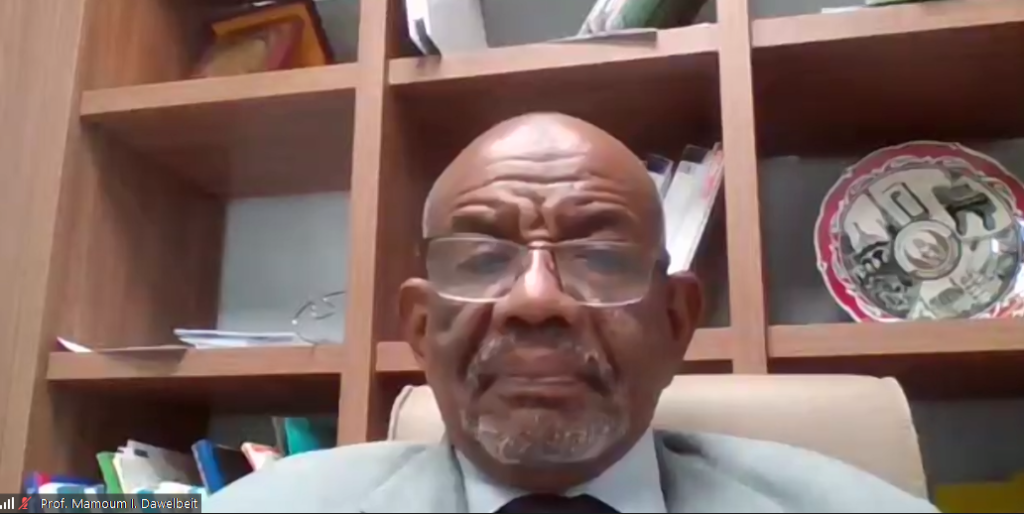São Paulo – After years of trade sanctions, Sudan is experiencing a new economic phase and needs investments in several areas. In a virtual event this Thursday (20), Mamoun Dawelbeit, director of Agricultural Technology Transfer at the CTC Group, the largest private agricultural company in Sudan, presented Brazilians with a series of areas related to agribusiness in which Sudan has opportunities for business ventures.
One of the mentioned possibilities was the establishment of agro-industrial complexes for the making and processing of agricultural products, such as grain milling and food production. According to him, there is also space for animal breeding and fodder and meat processing. Dawelbeit presented as a promising endeavor to provide agricultural services such as machine rental and other operations for farming.
The country needs more agricultural storage services. Another possibility is the investment in renewable energy businesses. Dawelbeit also presented opportunities for the manufacturing of fertilizers and pesticides, in addition to the production of seeds. More financial, marketing, and consulting services are also needed.
Like Brazil, Sudan is a country with a strong agricultural propensity due to its natural characteristics. Over a third of the country’s Gross Domestic Product (GDP) – 33% – is linked to agriculture, which employs half of the domestic labor force. The country, however, needs resources and cooperation to drive the sector forward and sees this new economic phase as an opportunity for its agriculture to take off.

Sudan is emerging from a difficult economic phase, which was described by Dawelbeit to Brazilians. The country experienced two decades of United States sanctions, which deteriorated its economic conditions and had an impact on all areas of society. Several facts, however, began to change the scenario from 2017 on, when sanctions were lifted. There were protests by the youth, and then President Omar Al-Bashir, who ruled the country for 30 years, was deposed in April 2019. The country got a new constitution and had a civilian prime minister for the first time.
At the end of 2020, the removal of Sudan from a list of countries that support terrorism by the United States inaugurated a new era for the country, since other nations became able to negotiate with the Sudanese without the risk of sanctions by the US. In March this year, the country had a debt of USD 1.1 billion cleared by the World Bank, and a conference in Paris this week brought together countries friendly to Sudan. France, Saudi Arabia, the United States, and several other nations have announced financial aid for Sudan, which should bring relief.
The country sees in these events roads opening for economic development, and one of the most promising areas is agriculture. In this sector, Sudan already has strong companies, such as the CTC group, which has existed since 1956. According to Dawelbeit’s presentation at the webinar, the company operates on several fronts in agriculture, with seeds, fertilizers, herbicides, pesticides, fungicides, seedling production, industrial chemicals, and spraying equipment; as a provider of technological solutions; with exports; bringing knowledge to rural producers; seeking new technologies and know-how for Sudan, among other activities.
African Development Bank Group

Another institution that works for the development of Sudan and African countries is the African Development Bank Group. The institution’s manager, Raubil Durowoju, participated in the webinar and spoke about the bank’s commitment to accelerate Africa’s economic transformation, focusing on feeding, industrializing, integrating, and improving the quality of life in Africa. According to him, in Sudan, one of the bank’s fronts is agriculture.
The webinar “Sudan: Technologies and Business Partnerships Opportunities for the Brazilian and Sudanese Companies” was hosted by the Arab Brazilian Chamber of Commerce (ABCC) alongside the Afro-Brazilian Chamber of Commerce (AfroChamber). The president of the ABCC, Osmar Chohfi; Brazilian ambassador in Khartoum, Patrícia Lima; and chargé d’affaires at the Embassy of Sudan in Brasilia, Mohammed Elrashed Sidahmed, spoke in the webinar.
Also spoke the president at the AfroChamber, Rui Mucaje; executive director of Innovation at the Brazilian Ministry of Agriculture, Livestock and Food Supply (MAPA), Cleber Soares; researcher at the Brazilian Agricultural Research Corporation (Embrapa), Marília Regini Nuti; and Marketing & Content director at the ABCC, Silvana Gomes. The ABCC’s Institutional Relations manager, Fernanda Baltazar, moderated the discussion.
Read more news about the webinar:
Brazil willing to share agricultural innovation with Sudan
From mining to agriculture, Sudan seeks investment
Watch the full event on YouTube:
Translated by Elúsio Brasileiro




